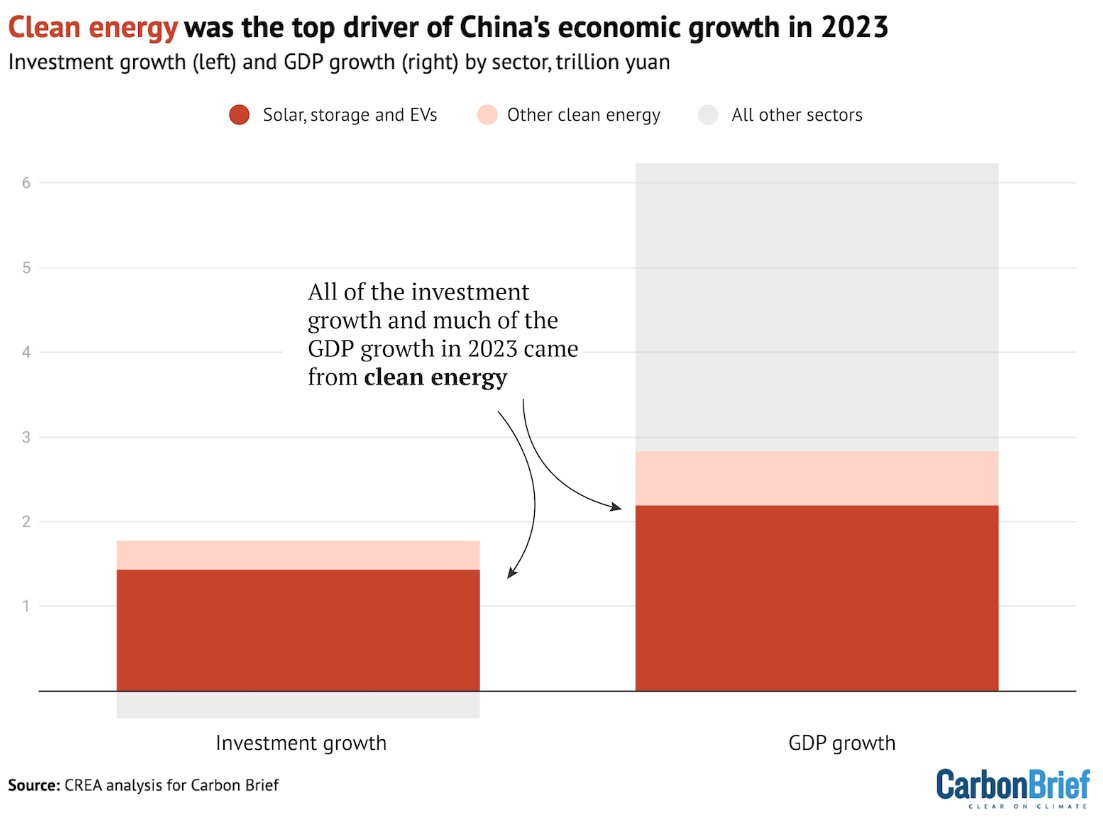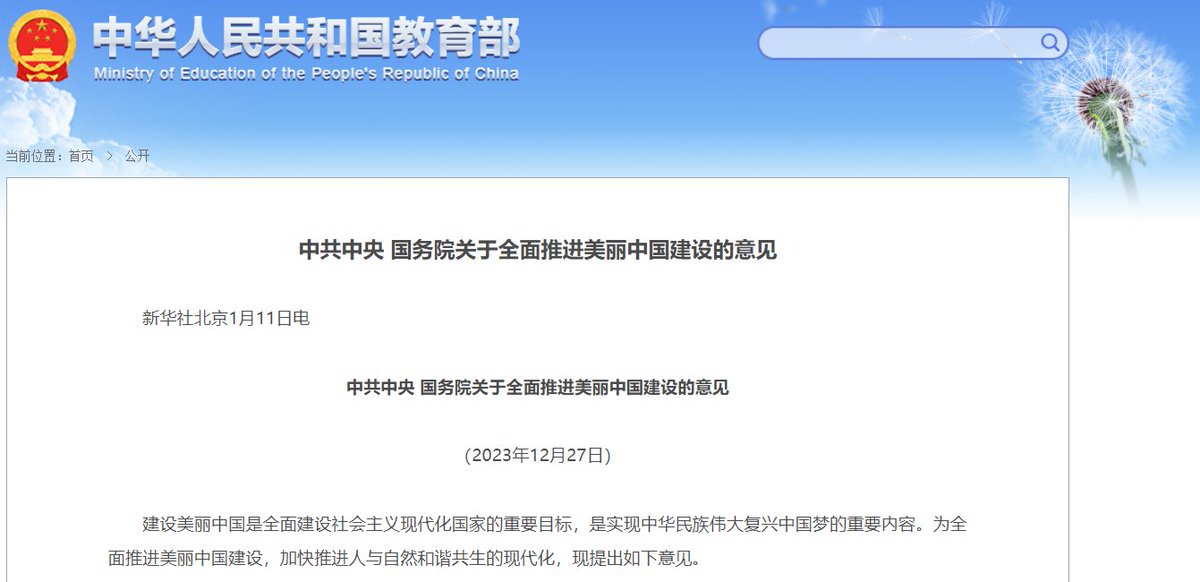
co-founder @CREACleanAir; senior fellow @AsiaPolicy: tracking and advancing the clean energy transition, with data and evidence.
2 subscribers
How to get URL link on X (Twitter) App


 China, India and Indonesia used 73% of the world's coal in 2024. Without their emissions growth, global energy sector CO2 would have peaked before 2020. Coal use grew 15% in China, 42% in India, and 150% in Indonesia 2015-2024, while consumption in the rest of the world fell 23%.
China, India and Indonesia used 73% of the world's coal in 2024. Without their emissions growth, global energy sector CO2 would have peaked before 2020. Coal use grew 15% in China, 42% in India, and 150% in Indonesia 2015-2024, while consumption in the rest of the world fell 23%. 
https://twitter.com/kyleichan/status/1969956985526169657...causes people to drastically underestimate the challenge of building alternative supply chains and the scale of the resources required to do it.

 We address several persistent myths and misconceptions about coal power in China. These are the key points we make:
We address several persistent myths and misconceptions about coal power in China. These are the key points we make: 

 It's been clear that clean (and dirty) power capacity additions numbers would be buoyed by the end of the five-year plan period, when a lot of projects race to complete. But I have not seen anyone predict anything this big.
It's been clear that clean (and dirty) power capacity additions numbers would be buoyed by the end of the five-year plan period, when a lot of projects race to complete. But I have not seen anyone predict anything this big.


 In the first five months of the year, China added 198 GW of solar and 46 GW of wind. Those turbines and panels will generate as much electricity as:
In the first five months of the year, China added 198 GW of solar and 46 GW of wind. Those turbines and panels will generate as much electricity as:
 First of all, the outage wasn't "caused by solar" or any other power plant or technology anymore than the rupture of this pipe was "caused by" water inside the pipe.
First of all, the outage wasn't "caused by solar" or any other power plant or technology anymore than the rupture of this pipe was "caused by" water inside the pipe.

 Significantly, Xi is taking credit for the growth of China's clean energy industry: "Since I announced China's carbon neutrality goal five years ago, we have built the world's largest and fastest-growing renewable energy system as well as the largest and most complete new energy industrial chain."
Significantly, Xi is taking credit for the growth of China's clean energy industry: "Since I announced China's carbon neutrality goal five years ago, we have built the world's largest and fastest-growing renewable energy system as well as the largest and most complete new energy industrial chain."

 Solar cell production grew a whopping 24% from a very high base, showing the rush to install solar power capacity before the June 1 deadline when new pricing rules for solar and wind kick in.
Solar cell production grew a whopping 24% from a very high base, showing the rush to install solar power capacity before the June 1 deadline when new pricing rules for solar and wind kick in.

https://twitter.com/CREACleanAir/status/1892001404526481567Clean energy sectors grew three times as fast as the Chinese economy overall, accounting for 26% of all GDP growth in 2024.

 A lot of media and policymaker attention is focused on possible US and European tariffs on China’s cleantech exports, with the perception that these could be a major blow to the industry.
A lot of media and policymaker attention is focused on possible US and European tariffs on China’s cleantech exports, with the perception that these could be a major blow to the industry.

 Three things changed in the IEA's coal demand projections: China's expected to plateau in 2024-27 (to grow at 0.3%/year but given uncertainties it might just as well be -0.3%), the U.S. and the EU are expected to fall more slowly, and in non-EU Europe and in Russia to increase instead of plateauing.
Three things changed in the IEA's coal demand projections: China's expected to plateau in 2024-27 (to grow at 0.3%/year but given uncertainties it might just as well be -0.3%), the U.S. and the EU are expected to fall more slowly, and in non-EU Europe and in Russia to increase instead of plateauing.


 China’s electricity demand in May 2024 grew by 49TWh (7.2%) from a year earlier.
China’s electricity demand in May 2024 grew by 49TWh (7.2%) from a year earlier.

 This is just one month of data, but it's based on structural drivers - I predicted six months ago that emissions would begin falling in March due to last year's record clean energy capacity additions:
This is just one month of data, but it's based on structural drivers - I predicted six months ago that emissions would begin falling in March due to last year's record clean energy capacity additions:

https://x.com/CREACleanAir/status/1686165185407369217?t=ECnKetfuR7ymz1I_txZqzg&s=19The crazy thing is that coal-based steel furnaces are simply cheaper to run in China so most scrap steel gets thrown into them! Building coal-based blast furnace - basic oxygen furnace plants and the coal to run them are too cheap compared with electricity.

 In 2021, China committed to cutting energy intensity and CO2 intensity of GDP, and strictly limiting growth of coal use and new coal power by 2025. The country also set targets for increasing non-fossil and renewable energy use. All these targets are now severely off track.
In 2021, China committed to cutting energy intensity and CO2 intensity of GDP, and strictly limiting growth of coal use and new coal power by 2025. The country also set targets for increasing non-fossil and renewable energy use. All these targets are now severely off track.

 China’s investment in clean energy increased 40% on year, and rose to 5% of the country’s GDP, at 6.3tn yuan ($890bn). The investment spending is roughly equal to the GDP of Switzerland or Turkey. Investment in clean energy was responsible for all net growth in investment.
China’s investment in clean energy increased 40% on year, and rose to 5% of the country’s GDP, at 6.3tn yuan ($890bn). The investment spending is roughly equal to the GDP of Switzerland or Turkey. Investment in clean energy was responsible for all net growth in investment.

 The document sets 2027 as a new, high-level milestone by which "green and low-carbon development will be further promoted". There are some meaningful targets for 2027 in this document and it is significant in speeding things up as it can provide a deadline for a lot of things.
The document sets 2027 as a new, high-level milestone by which "green and low-carbon development will be further promoted". There are some meaningful targets for 2027 in this document and it is significant in speeding things up as it can provide a deadline for a lot of things.